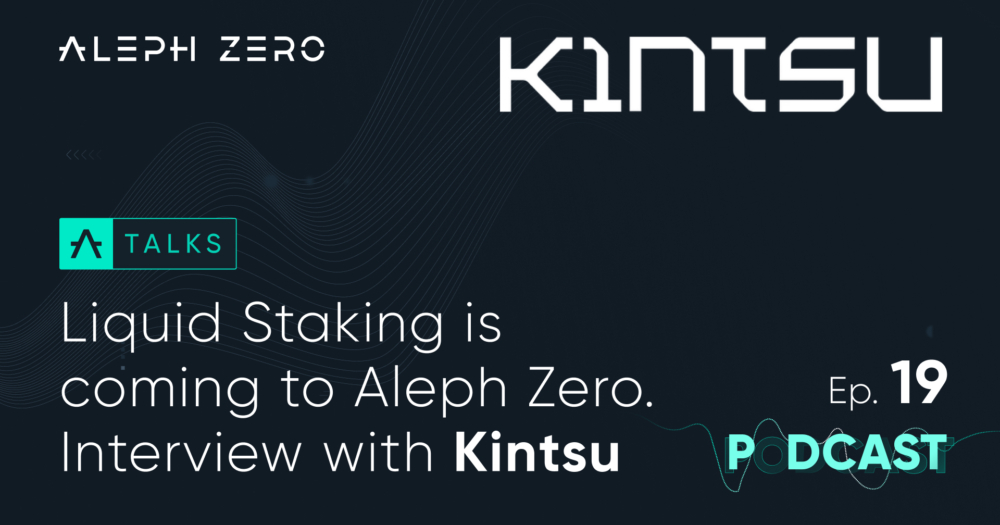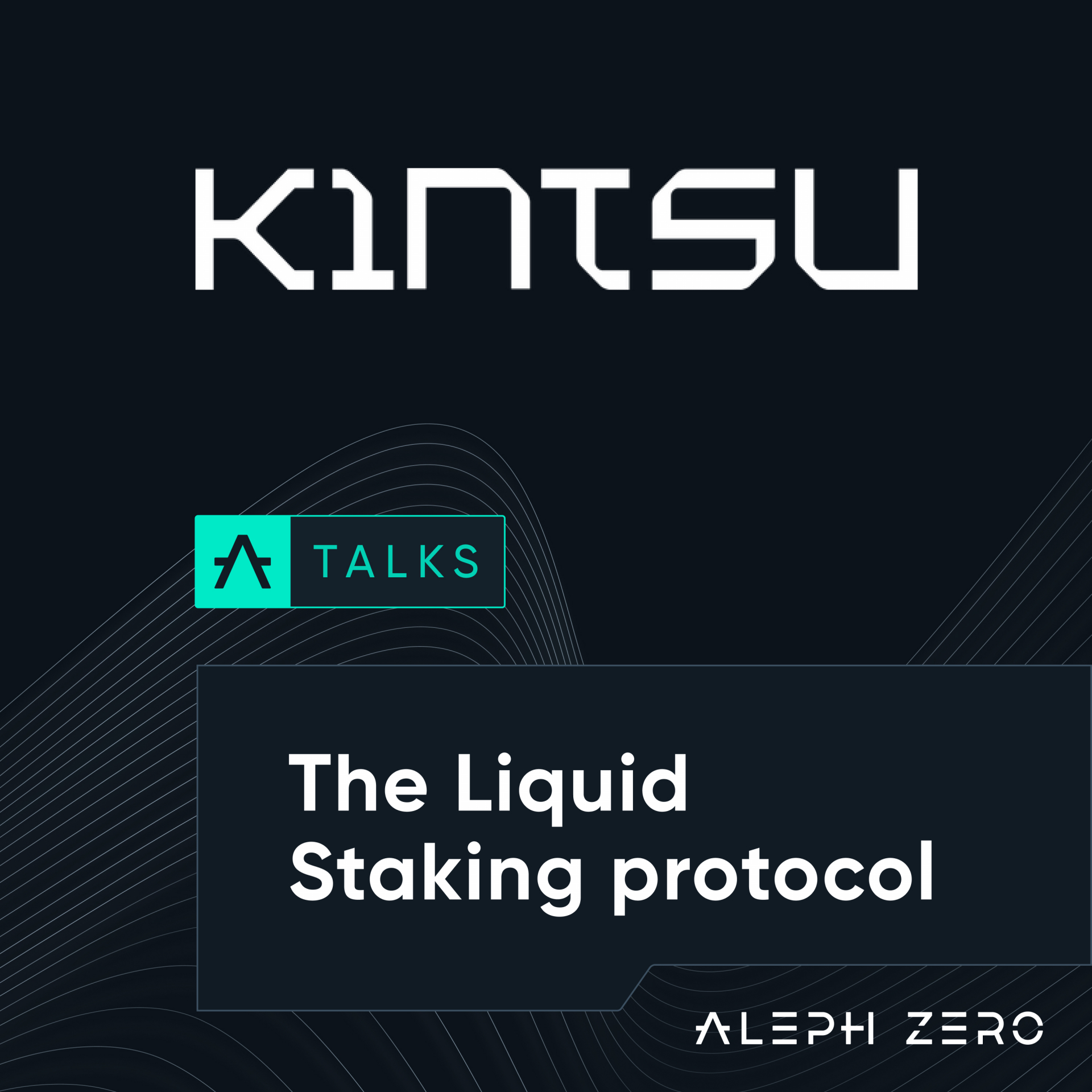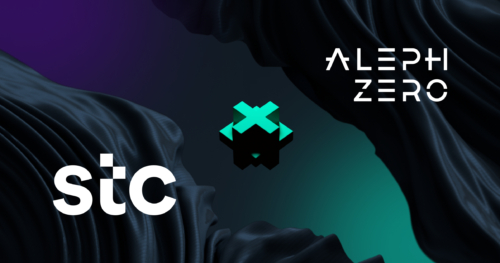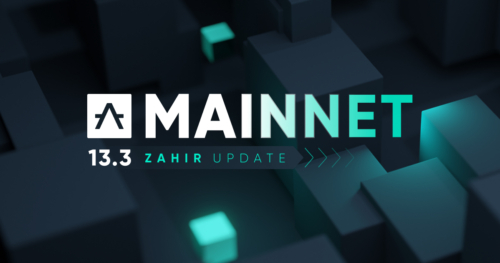Liquid Staking is coming to Aleph Zero: an interview with Kintsu. Podcast Key Takeaways
Nov 30, 2023

The latest episode of the Aleph Zero Podcast is a meeting with Stephen Novenstern, the founder of Kintsu, a liquid staking platform developing on Aleph Zero that aims to unlock the value of staked assets for the network, thus expediting its development.
Listen to the episode on the platform of your choice
TL; DL
Too Long; Didn’t Listen
- Before building Kintsu, Stephen Novenstern was associated with Pangolin as Head of Strategy, one of the largest DEXs on Avalanche.
- Kintsu is a liquid staking protocol that aims to build upon Aleph Zero, leveraging the privacy features offered by the network to create a next-generation DeFi platform.
- Liquid staking providers receive deposits from users that are staked on their behalf. Afterward, the users are provided with a new token representing their stakes and allowing them to use this derivative in further network activities.
- The token that users receive for staking their coins with Kintsu will be called sAZERO.
- This allows network actors to benefit from staking rewards without locking their tokens indefinitely, essentially preventing them from trading them or using them as collateral.
- A decentralized autonomous organization (DAO) will govern the Kintsu protocol, allowing members to vote on which validators get to safeguard the network. The voting will be made private thanks to Aleph Zero’s privacy-preserving features.
- Kintsu will be introducing its own governance token besides issuing sAZERO.
- Liquid staking protocols allow users to diversify their income sources by allowing them to further farm, stake, and invest their liquid staking token.
- The strength of Kintsu is that it benefits the network by not tying liquidity to one project. Instead, users can move derivatives across various products, which provides dynamic movement and invigorates the ecosystem as a whole.
- To ensure compliance, Kintsu has been working with Kudelski Security to ensure that the project is audited and secure before the Mainnet launch.
Introducing Kintsu: A Liquid Staking Protocol Currently Building on Aleph Zero
The guest of the latest Aleph Zero Podcast episode was Stephen Novenstern, who previously was associated with Pangolin, one of the large DEXs developed on Avalanche that, at its peak, had a trading volume of over 16 billion dollars and operated on numerous chains.
His experience as Head of Strategy gave him a unique insight into the DeFi space and led him to the concept of liquidity staking protocols. Sometime later, he discovered Aleph Zero and realized that it is possible to create a next-generation liquid staking protocol by leveraging Aleph Zero’s subsecond finality and unique privacy features.
Liquid staking provides blockchain networks with the means through which users can deposit their tokens to the protocol and receive a derivative of their stake, known as a liquid staking token (LST). In the case of Kintsu, users will be able to stake their AZERO and receive sAZERO that represents their deposited tokens. Later on, they can use this sAZERO to conduct further activities in the DeFi landscape and to engage with other protocols building within the Aleph Zero network. This benefits the blockchain by preventing tokens from being frozen indefinitely, as it occurs with traditional staking.
DAOs, Compliance, and Mainnet Launch
Additionally, Kintsu aims to preserve its decentralized nature by creating a DAO that will be governed by protocol users who can vote on members of the validator committee through a separate governance token issued by the protocol. Progress in this area has been conducted in conjunction with Syncra, a project specialized in DAO construction also developing on the Aleph Zero network.
As with all DeFi projects, safety is paramount. To ensure the project’s security, Kintsu has worked closely with Kudelski Security to audit every development step. Mainnet launch is predicted for Q1 of 2024.
A fun fact about Kintsu is the origin of their name, which comes from a Japanese art form known as Kintsugi, which is based on the concept of fixing broken pottery with gold. The founders of the project believe that Kintsu plays a similar role in the Aleph Zero network as it connects various protocols together through liquid staking.
Listen podcast

EP. 19 Liquid Staking Is Coming to Aleph Zero. Interview With Kintsu.
In this episode of the Aleph Zero Podcast, we meet with Stephen Novenstern of Kintsu, a liquid staking protocol currently being developed on the Aleph Zero network. We'll learn what this project brings to the ecosystem and how it facilitates the growth of the network by providing more opportunities to AZERO holders.


